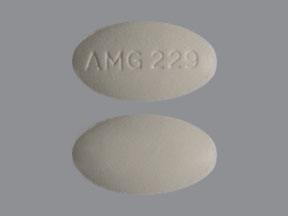
Lysteda Coupons & Savings Card – Discount Prices from $31.58
Brand for: Tranexamic acid
My prescription
Edit
650MG, Tranexamic Acid (30 Tablets)
Select pharmacy

CVS
$31.58
COUPON PRICE
Walgreens
$40.20
COUPON PRICE
Walmart
$44.36
COUPON PRICE
Albertsons
$45.80
COUPON PRICELysteda savings card
Show this card to your pharmacist
CVS
$31.58
BIN
ID
PCN
GRP
019876
LH07E3573F
CHIPPO
LHX
Powered by
Related antifibrinolytics prescriptions
More prescriptions for hemorrhage
Related antifibrinolytics prescriptions
More prescriptions for hemorrhage
Lysteda (Tranexamic Acid) dosage forms
Dosage Quantity Price from Per unit 650MG 30 Tablets $31.58 $1.05 650MG 1 Tablet $1.01 $1.01 650MG 15 Tablets $24.60 $1.64
| Dosage | Quantity | Price from | Per unit |
|---|---|---|---|
| 650MG | 30 Tablets | $31.58 | $1.05 |
| 650MG | 1 Tablet | $1.01 | $1.01 |
| 650MG | 15 Tablets | $24.60 | $1.64 |
Who should not take Lysteda?
Lysteda should not be taken by individuals who have a history of blood clots, a condition called thrombosis, or those who are at risk for thromboembolic disorders. It is also contraindicated in individuals with a history of hypersensitivity to tranexamic acid or any of its components. Additionally, those with active intravascular clotting or subarachnoid hemorrhage should avoid using Lysteda. It is important for individuals to consult with their healthcare provider to determine if Lysteda is safe for them, especially if they have any underlying health conditions or are taking other medications.
What happens to period blood when you take tranexamic acid?
Tranexamic acid works by helping to reduce heavy menstrual bleeding. It does this by promoting blood clotting, which helps to decrease the amount of blood lost during a period. As a result, individuals taking tranexamic acid may experience lighter periods with reduced blood flow.
What happens to the uterine lining when taking tranexamic acid?
Tranexamic acid works by helping to reduce bleeding. When taken, it stabilizes the blood clots in the uterine lining, which can help decrease heavy menstrual bleeding. It does not directly affect the thickness or structure of the uterine lining itself, but rather reduces the amount of bleeding by preventing the breakdown of blood clots.
Will Lysteda stop my period?
Lysteda (tranexamic acid) is not intended to stop a period entirely. It is used to reduce heavy menstrual bleeding. While it can decrease the amount of bleeding, it does not typically stop the period altogether.
How safe is Lysteda?
Lysteda, also known as tranexamic acid, is generally considered safe when used as directed for the treatment of heavy menstrual bleeding. However, like any medication, it may have potential side effects and risks. Common side effects can include headache, back pain, nasal or sinus symptoms, and joint or muscle pain. It is important for individuals to discuss their medical history and any other medications they are taking with their healthcare provider to ensure Lysteda is appropriate for them. Additionally, those with a history of blood clots or certain other medical conditions should use caution and consult their healthcare provider before using Lysteda.
